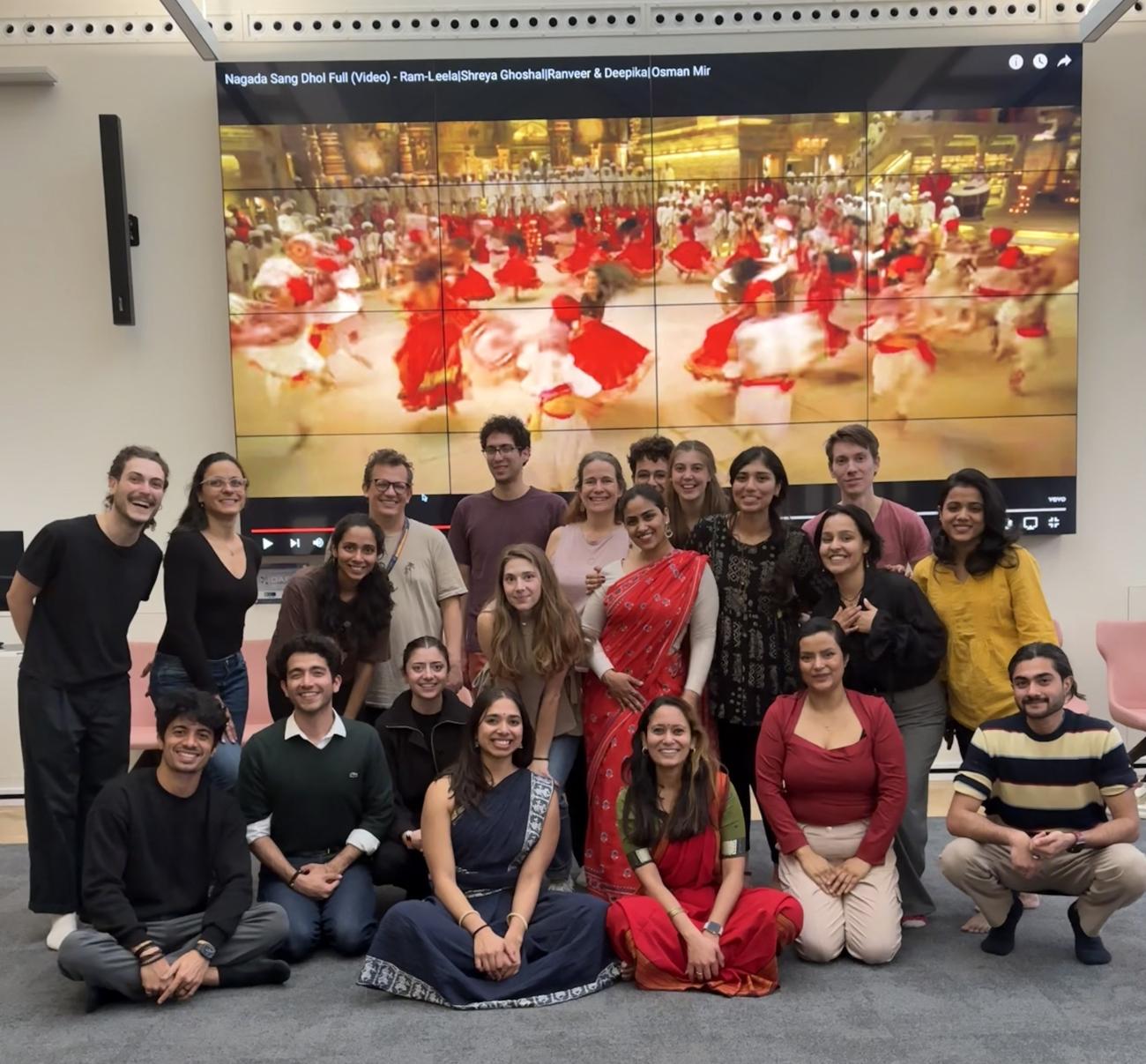ECI DPhil student Tanaya Nair, recently hosted a unique event that blended art, culture, and ecology in an engaging and interactive way. Tanaya explains how Dance Mirrors Nature: An Indian Dance Workshop offered attendees a glimpse into how traditional Indian dance forms carry forward ecological knowledge.

Together with Oonmona Das, an MPhil student in Global and Area Studies, at the University of Oxford, I curated a vibrant Biodiversity Cluster event titled Dance Mirrors Nature: An Indian Dance Workshop.
The workshop introduced a variety of Indian folk and classical dance styles, illustrating the deep connection between biodiversity and movement. We explored how local ecological knowledge is embedded within these dance forms, influencing choreography, narratives, and even the materials used in costumes and musical instruments.
We emphasised the concept of ‘dancing wisdom’—a form of embodied knowledge passed down through generations via traditional teacher-student relationships and community practices. This practice helps restore people’s intricate connection to nature. By engaging in dance with intention, awareness, and devotion, both performers and audiences experience transformation and a deeper appreciation of biodiversity.
Through the dancers intention, awareness, and devotion to the art form, both the performer and the audience members are transformed.
After a short presentation and discussion we taught a graceful high-energy Indian dance choreography to a Bollywood film song. The workshop ended with lots of happy faces, Indian snacks, and an opportunity to connect with members of the workshop which continued at the pub.
We feel that our goal of sharing the diversity, richness, and cultural significance of dance in India and to get people from all over the world to move and celebrate biodiversity through dance was achieved.
This immersive experience not only highlighted the artistic and cultural significance of Indian dance but also reinforced the importance of traditional knowledge in understanding and preserving biodiversity.
The workshop was funded by The Biodiversity Network which seeks to highlight and integrate the range of biodiversity-related research and activities going on in Oxford, and to work closely with other Oxford Networks for the Environment (ONE) to contribute to the sustainability of the natural world.

